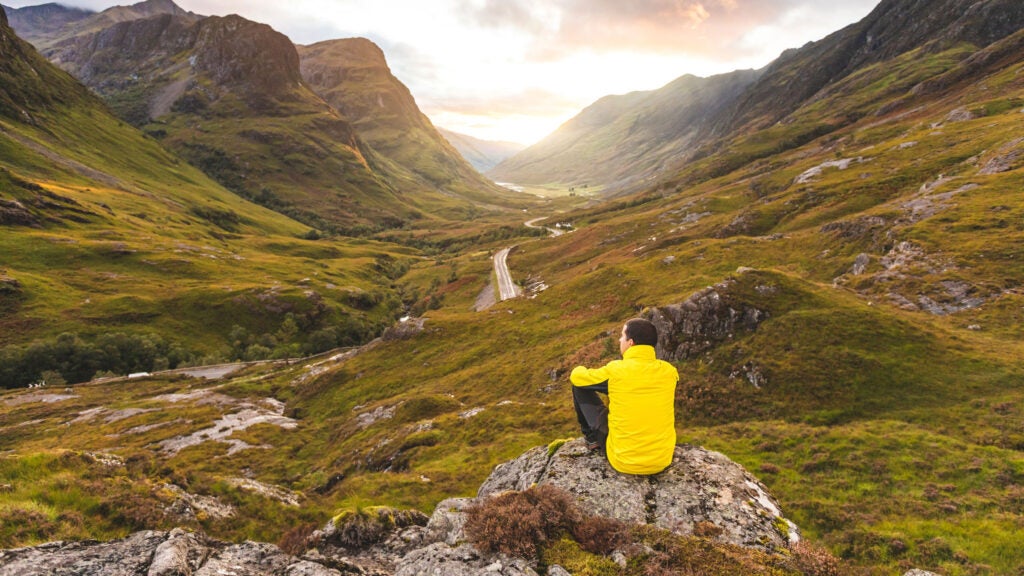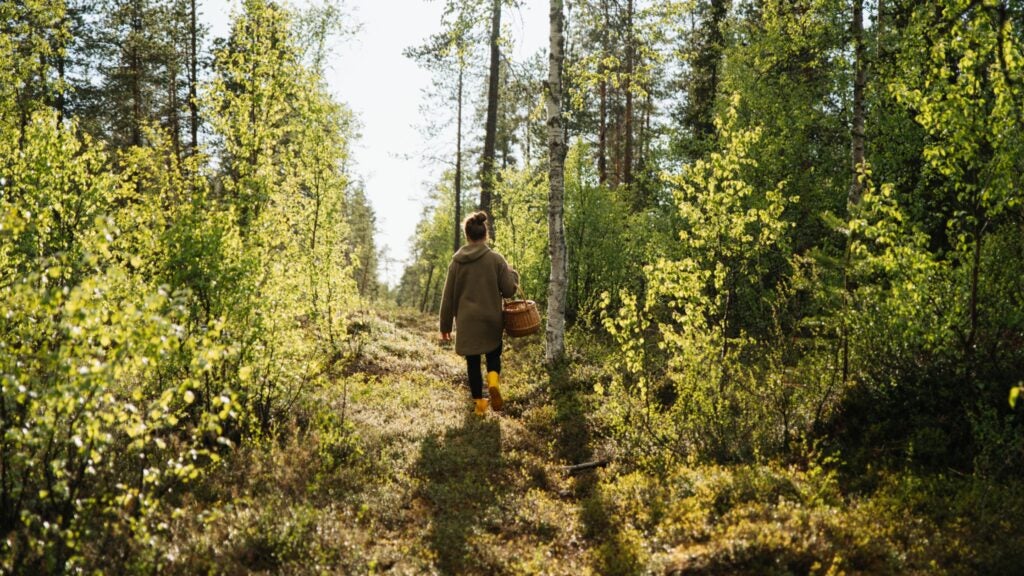
I felt silly and needy the primary time I caught out my thumb for a hitch on the Appalachian Path. My climbing companion badly wanted a experience to city, however the self-consciousness I felt round begging for a raise was all I might take into consideration.
On the time, I couldn’t place why I felt so ashamed asking for a—brief! Simple!—experience with my thumb within the air. Now, years later, I get it: The idea of independence had been drilled into my mind for my complete grownup life. Self-sufficiency and success have been so intertwined that even the concept of needing one thing I couldn’t present for myself introduced an surprising problem to dwelling on foot for 5 months.
I used to be pleased with my maturity independence, however the overemphasis I and our tradition had placed on it left me deeply lonely. When you get to a sure age, asking individuals for assist (except for a companion or members of the family) turns into more difficult, whether or not it’s a sympathetic ear or pet care while you go away city. However on a path, the deal with independence fades, and you end up a part of a neighborhood constructed round not simply shared values, however shared wants. I’ve described generational gaps disappearing on path, and this sense of relatability is comparable. Whereas some hikers may need extra sources—assume lodge rooms fairly than bunkhouses—total, we’re going by comparable issues and dealing in the direction of a shared purpose. For many people, it’s our first time being a part of a neighborhood like that.
We in the USA reside in one of many world’s most individualistic societies: Talking usually, we have a tendency to carry independence in greater esteem than neighborhood. Because the Brown Political Assessment writes, “People usually tend to prioritize themselves over a bunch they usually worth independence and autonomy.” Whether or not or not you acknowledge it, likelihood is you’ve felt this strain to be autonomous. Independence equals success; neediness is just not rewarded.
Hikers are a needy bunch by alternative. Although many come from privilege, hikers put themselves ready with out transportation, as an alternative hitching to resupplies and assist from individuals at dwelling delivery alternative gear. To make a protracted journey on foot is to exist not simply with out the comforts of dwelling, however with out the sources both. By inserting ourselves ready the place we don’t have what we have to make it on our personal, we take the primary steps to reconnect with what it means to depend on your neighborhood.
Present in an individualist society can really feel isolating. This winter, I discovered myself driving to the airport a number of instances, dragging my suitcase down the sidewalk from the financial system lot as a result of someway there was nobody round to present me a experience. Was this a symptom of getting older and shedding neighborhood, or was it that my self-sufficiency through the years created an assumption I by no means wanted assist? I considered how hitching had progressively misplaced its stigma for me as I normalized it all through the path and subsequent hikes. I in contrast it to being turned down once I sought a experience from mates, the indifference as a result of they knew that I had my very own automobile and I might pay for parking.
The Stanford Each day places it bluntly: “America at present is characterised primarily by rampant individualism now not held in examine by communal ties.” Whereas this can be a generalization, it does seem to be we’re trending in the direction of being a lonely society the place individualism has outmoded neighborhood, felt in every little thing from office isolation to the acute loneliness of driving your self to the airport at 5 a.m.
The pandemic years have solely deepened this sense of loneliness. Returning to the outside is a reminder of what neighborhood can really feel like. It isn’t simply that thru-hikers share a standard purpose. We anticipate we’ll all want help in some unspecified time in the future, and in flip we assist others.
It’d imply sharing a lodge room to save cash, buying and selling meals we’re sick of, or providing to assist with a clogged filter at a water supply. We’re climbing the identical passes and planning for a similar distances between water sources. We’d cease to level out an enormous spider internet and share the awe with hikers round us, or cease in the course of an arduous climb round different stalled hikers, lamenting the unending switchbacks with people who find themselves additionally climbing the unending switchbacks. This isn’t simply idle chatter: It’s neighborhood constructing.
Since changing into embedded on this neighborhood, I’ve given rides to hikers and sought methods to be a useful resource for close by trails, together with the Continental Divide Path and Nice Divide Mountain Bike Race. I’ve hosted hikers, run shuttles, and picked up hitchhiking skiers. My off-trail life represents nearly all of my days, which makes me marvel how else we are able to take that sense of neighborhood and current it in a manner the place it’s not out of the query to ask for a experience to the airport. Even when our widespread objectives in the true world are extra imprecise than a distant terminus, we must always attempt to deliver that sense of connection off the path and again into our on a regular basis lives.
Supply Hyperlink : Lowongan Kerja 2023

